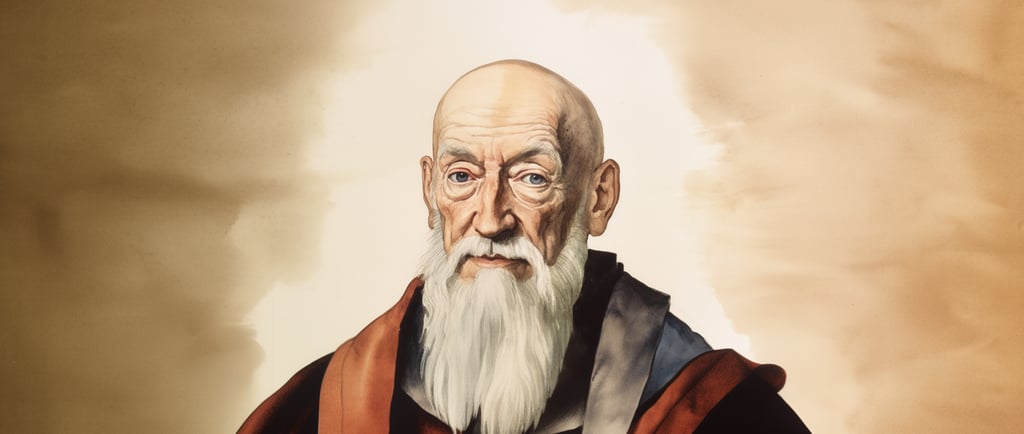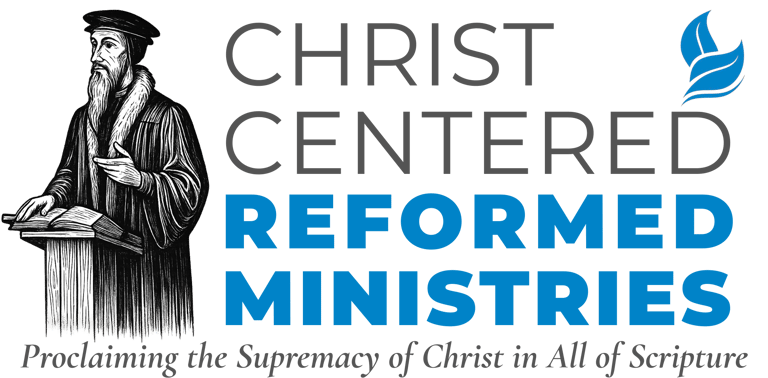Franciscus Gomarus: The Stalwart Defender of Reformed Orthodoxy
Delve into the captivating life and enduring legacy of Franciscus Gomarus, the stalwart defender of Reformed orthodoxy during the 16th and 17th centuries. This narrative offers a profound exploration of his theological convictions, monumental debates, and the profound impact he left on Reformed Christianity.
BIOGRAPHY
Justin Hoke
10/20/20233 min read


Introduction/Prologue
Amidst the shifting sands of the late 16th and early 17th centuries, where theological disputes often spilled over into socio-political tensions, the figure of Franciscus Gomarus stood as a beacon of unwavering conviction. A leading Reformed theologian of his time, Gomarus’s legacy extends beyond mere academic theology. His life and teachings offer a deep dive into a time when the core tenets of the Christian faith were being fiercely debated, the outcome of which would influence the very course of Reformed Christianity.
Early Life and Ancestry
Born in Bruges in 1563, a city known for its medieval charm, Franciscus Gomarus grew up during the resurgence of Reformed theology. As a child, Gomarus was exposed to the central teachings of the Protestant Reformation, which no doubt would shape the course of his theological endeavors.
Formative Experiences
Gomarus's academic journey was marked by studies in various European cities. From Strasbourg to Oxford, and from Heidelberg to Geneva, he imbibed a robust Reformed tradition, having been tutored under eminent theologians like Theodore Beza. It is no surprise then, that he would become an ardent proponent of the doctrines of grace and God’s absolute sovereignty.
Major Life Events and Deeds
Gomarus’s professorship at the University of Leiden (1594) was instrumental in shaping Dutch Reformed theology. However, his time there was not without controversies. His most significant theological conflict was with his colleague Jacobus Arminius, a dispute that became emblematic of the broader tension within the Reformed tradition.
The essence of their disagreement revolved around the nature of predestination and the extent of man’s free will. While Arminius posited a more synergistic view, Gomarus staunchly defended the monergistic position – that salvation is solely the work of God, from its initiation to its completion.
Trials and Temptations
The Gomarus-Arminius divide led to the famous Synod of Dort (1618-1619), a seminal moment in Reformed history. Thomas Scott's "The Theology of the Synod of Dort" paints a vivid picture of the passionate debates and their wider implications. Gomarus, as the defender of Reformed orthodoxy, emphasized the unconditional nature of election and the particular redemption of Christ for the elect. The outcome of the Synod resulted in the Canons of Dort, which W. Robert Godfrey in "Saving the Reformation: The Pastoral Theology of the Canons of Dort" refers to as an intricate tapestry of Reformed soteriology.
Relationships and Interactions
Throughout his life, Gomarus interacted with a plethora of scholars and theologians. Apart from Arminius, his correspondences and discussions with other Reformed theologians like Johannes Bogerman and Sibrandus Lubbertus provide insights into the intricate tapestry of theological discourse of the era.
Death and Transition
Gomarus’s final years were spent in Groningen, where he continued to teach until his death in 1641. Though he faced much opposition during his lifetime, his commitment to the Reformed faith never wavered. Like Paul, who wrote to Timothy, “I have fought the good fight, I have finished the race, I have kept the faith” (2 Timothy 4:7), Gomarus remained steadfast.
Legacy and Veneration
Posthumously, Gomarus's teachings found resonance with the Reformed tradition, especially within the Dutch Reformed Church. His legacy is intricately tied to the Canons of Dort, a document that continues to guide and shape Reformed theology today.
The "Reformed Confessions Harmonized" by Joel Beeke and Sinclair B. Ferguson positions Gomarus's views within the larger framework of Reformed confessional writings. Gomarus, in many ways, represents a bridge between the foundational teachings of the Protestant Reformation and the nuanced developments of later Reformed orthodoxy.
Conclusion
Franciscus Gomarus was not just a theologian or an academic. He was a defender of a faith tradition that he believed was central to the gospel message. His life serves as a testament to the importance of conviction, perseverance, and theological rigor. In an age where beliefs are often transient and malleable, the figure of Gomarus stands as a reminder of the enduring nature of deeply held convictions and the transformative power of unwavering faith.
For Further Study:
"Reformed Confessions Harmonized" by Joel Beeke and Sinclair B. Ferguson
"Saving the Reformation: The Pastoral Theology of the Canons of Dort" by W. Robert Godfrey
"But for the Grace of God: An Exposition of the Canons of Dort" by Cornelis P. Venema
